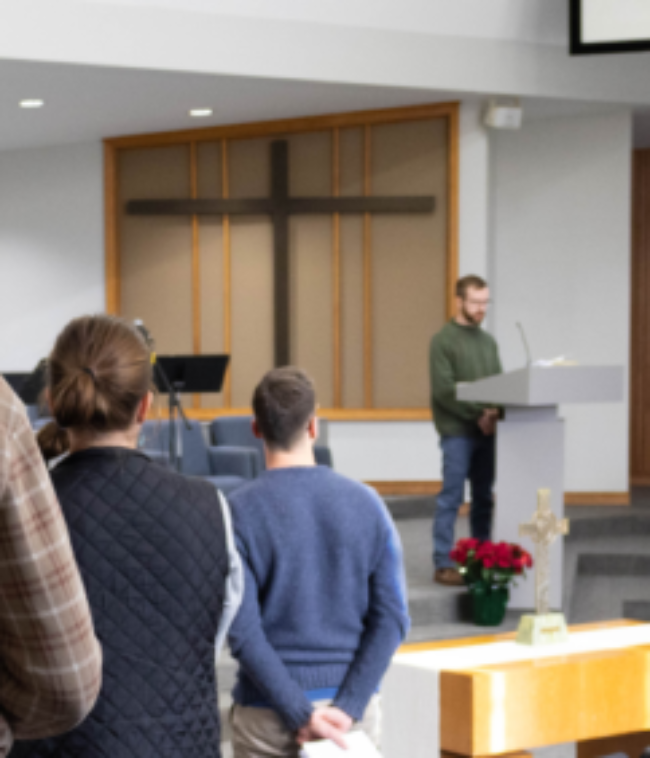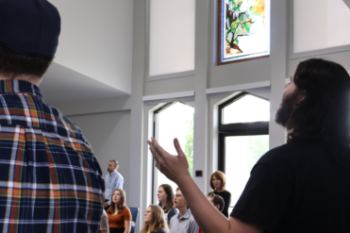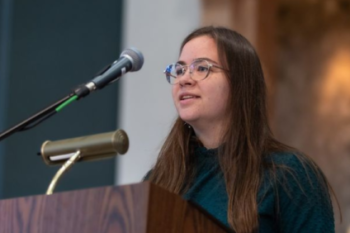Preaching on Empty: The Importance of Prayer in Preaching
Everything I know about preaching–or at least some portion of what I think I might understand–I learned from a stomach virus. I have to assume it was a virus that induced the three days of vomiting because I can’t bear the thought it was food poisoning from America’s favorite roadside breakfast place where you eat under a hanging shovel. However the misery began, it ended on a Saturday morning where I had about 3 hours before I had to get up in front of the church for our Saturday night services and say words out loud. There was no one else available to fill in and since it was a large church with a domino-like set up of timing and programming, I had to find a way. I sat down at my kitchen table literally and spiritually empty with Pedialyte in my right hand and Gatorade in my left.
I was five years into ministry. I preached a few times a year for our weekend services and taught in other smaller environments. But I was still sorting out what it meant to be amplified in a worship service. And no matter what anyone may have taught me during 7 years of college and seminary, I was still under the impression that preaching was about being the one in the room who paid the most attention to God. Preaching was about transferring knowledge. I was an accidental Gnostic. I held the mystery.
But because of this virus and my depleted nutrients, I got up on this particular weekend and just offered what clarity I could muster, hoping that I would at least be able to point the way toward truth and could let the congregation fill in the details.
I prayed with a new degree of helplessness and humility as I got ready. I asked God to guide me and strengthen me. I listened for what the Spirit might need the church to hear that could come through the uniqueness of me. I prayed through Psalm 40.9-11: What good news was worth proclaiming in the great assembly?
As I prepared, I felt less compulsion to prove my points. Instead of trying to show off what I knew, I decided to just describe what we all might know and need to remember.
As I prepared, I felt less compulsion to prove my points. Instead of trying to show off what I knew, I decided to just describe what we all might know and need to remember.
I used fewer words. My word count on the manuscript was 1,000 words less.
I said the words slower. My sentences were simpler. The virus had wiped out my need to construct complex sentences that required keeping my eyes on the script.
I felt more present in the moment. I was acutely aware of the physicality of my body on the stage, in the room with other bodies. This started as a fear I might vomit onstage and become a YouTube sensation but it morphed into a more beautiful revelation about the risk God takes on becoming flesh—and the risk God takes on us carrying the gospel in us.
I left more room for prayer at the end of the message. And my prayer took on a different rhythm. Instead of restating all my crucial talking points and addressing the congregation through the guise of talking to God together, I actually constructed a prayer more like a conversation with God. Public prayer is strange. Wendell Berry has a great poem about how wild it would be if our public prayers were actual conversations with God Almighty. (I won’t spoil it here but if you look up “An Embarrassment”, it might ruin every public prayer you hear from now on.) Our text for the day had been 1 Corinthians 13. I slowly read through the descriptions of love and asked them to be true of us like they are of Jesus. There was room for confession and silence. (I know this type of prayer may sound like standard fare for people in High Church settings, but this was a church with a lot of programming and a tight schedule. And our prayers often reflected those priorities.)
There was a marked difference in the way people responded to this message. They talked to me about things they discovered through the service rather than just applauding my efforts. I was young then—and when you’re young, people are often gracious and want to let you know you did a good job. Even if you didn’t. But after this weekend, they talked to me more about how they were wrestling with faith. I had stumbled into showing them I was a real person in the mix with them, instead of a content generator standing behind a microphone.
I feel a need to confess: I don’t know if these learnings sound novel to anyone, but they were pivotal for me at this moment in ministry. I was falling into the temptation to believe preaching was performative rather than formative. I was leaning too much on my own words than on the conversational life between human groans, the Spirit translator, and the God of the world. I was neglecting the work of God in the lives of the people in the church and overemphasizing my role in telling them what to do.
I was falling into the temptation to believe preaching was performative rather than formative. I was leaning too much on my own words than on the conversational life between human groans, the Spirit translator, and the God of the world.
After this weekend, the story of Jesus talking with the Samaritan woman at the well in John 4 became a foundational story for me. I learned to love their honest conversation. I loved how the story she told her community was about Jesus’ knowledge of her and his concern for her. And I love that she forgot the whole reason she came to the well in the first place. John says she just left her water jug there.
There’s something to be said for running on empty.





